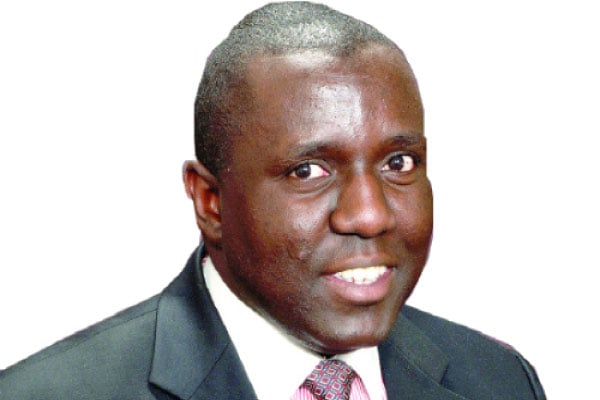Prime
The strike is justified but why aren’t Science teachers leading it?

Author, Benjamin Rukwengye. PHOTO/FILE.
What you need to know:
It took the work of media, marketeers, distributors, creatives, to get the word out about Covidex
We went to a quiz event this week, with a couple of friends. The first round was about human anatomy, and required a simple fact or fiction response.
We had two doctors on the team so we left it to them and they breezed through the questions. When the results were released, we came last. We started to joke that if President Museveni needed any evidence against his “Scientists deserve more than artists” refrain, we had just found it.
The next round was about naming capital cities – a category for the artists. When we flunked it as well, it became clear that perhaps, the quality on both ends of the spectrum isn’t that much different. It is not clear when this obsession with Science started but it is what has brought our already flailing education system to yet another halt. It is also important to note that it is not entirely wrong. Investment in science really has the ability to catapult societies out of the backwaters and into the future.
However, it is misguided to imagine that for it to happen, it has to be at the expense of the Arts. In fact, I dare say that it is impossible for Science to make any meaningful advancement of society if the humanities don’t match up. Suffice to say, the fact that the government is cognizant of the need to increase teachers’ pay must be commended – even if they are approaching it counterproductively.
The argument therefore, that two people – teachers in this case – with similar qualifications, work requirements, and at the same premises should be paid differently is null. It can only be made and advanced by someone who neither understands science nor has any appreciation of the arts. It is unscientific and flavourless.
Take for example, my pick for Uganda’s person of the decade – whether you choose to count backwards or forwards – Prof Patrick Ogwang. In some ways, it is a pity that he was born and practices in Uganda, because his contribution to humanity at our lowest point will probably never be accurately captured.
It is thanks to his scientific innovation that we have finally got a grip on the multiple variants of Covid. But it took the work of media, marketeers, distributors, creatives, to get the word out about Covidex, and for Prof Ogwang to get justly rewarded for his work. Not to mention getting him out of that legal spot of bother with his employers at Mbarara University of Science and Technology, who wanted a piece of his share.
The same argument could be made for my friends at Rocket Health, and their telemedicine service which enables you to access healthcare on the phone. Their business model would have been unviable had they simply focused on hiring doctors, pharmacists and lab technicians. To complete the cycle, they also require professionals schooled in people skills, such as communicators, customer care people and marketeers to transmit messages, sell products and provide the service. Otherwise, they wouldn’t be any different from your average Ugandan hospital with its insufferable bad service.
Ergo, a scientist who creates a microchip, is as important to the process as the creative who writes or voices the advertising script to ensure users understand its benefits within a couple of seconds. How then do you make an argument for a different pay scale for those who teach them? This sentiment is probably rooted in the misunderstanding of a teacher’s role.
Teachers are primarily facilitators of dreams and ambitions. Their role is to support learners to discover and become the best versions of themselves, so that they are prepared for a future that none of us knows about. But because we are obsessed with the wrong priorities, we have redefined the role of teachers to focus on making children pass exams.
Speaking of the future of work. You might have heard of something called the 4th Industrial Revolution, which places technology at the centre of driving work and life – and how we need to prepare young people for the future of work.
All this science hullabaloo would perhaps make sense if that’s what it was about. But we are not going to upskill our teachers; we don’t have access to (affordable) internet and or even enough experimental equipment and facilities for children to learn; and are now creating a divide between teachers based on the subjects they teach. What are we on?
Mr Rukwengye is the founder, Boundless Minds. @Rukwengye




